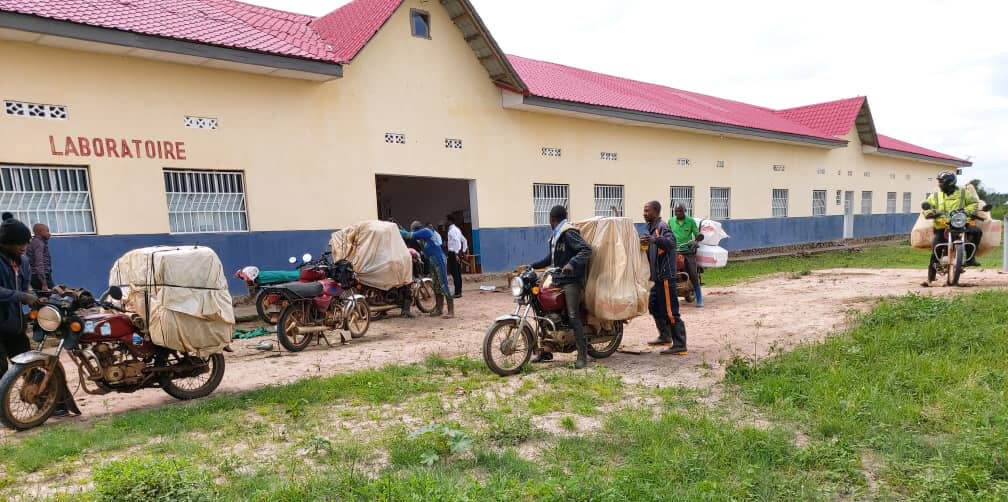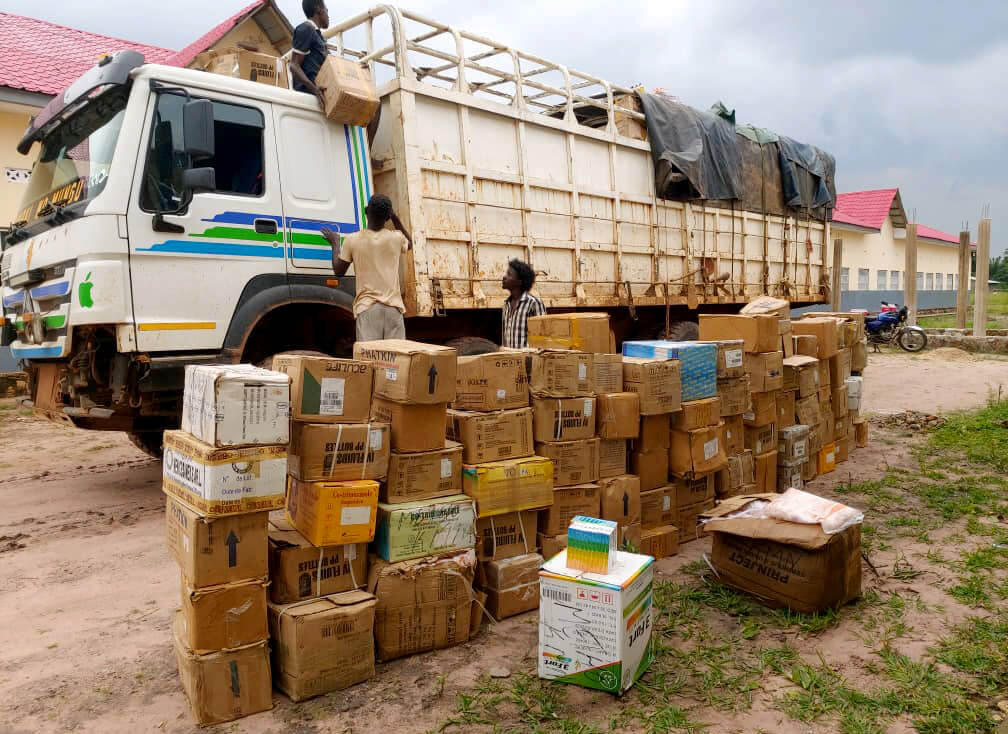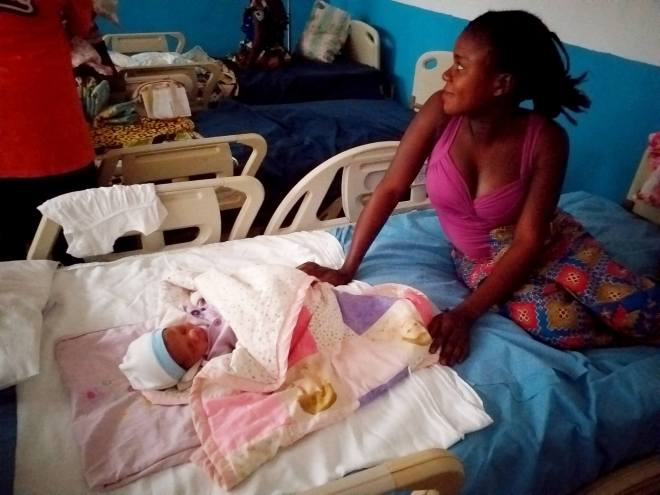
Once supplies are received at Lupandilo Hospital in Kamina, they are divided up and loaded onto motorbikes for delivery to the 24 other UMC health facilities in the North Katanga Episcopal Area. PHOTO: NORTH KATANGA UMC HEALTH BOARD
By Christie R. House
July 28, 2021 | ATLANTA
With little money and a dense forest with impassable roads between towns in the Democratic Republic of Congo, 28 miles is a long way to travel, especially for someone who is eight months pregnant. But Bibi was 25 years old, and she and her husband had already lost five children, two to miscarriages and three to fevers when they were just infants.
Her husband blamed her family and the traditional healers they sent her to, her family blamed her husband and sorcery, and in the middle was Bibi, pregnant again, praying that she wouldn’t lose another baby.
But something had changed since Bibi’s last pregnancy. In 2018, United Methodists in North Katanga began reconstruction of the Lupandilo Hospital in Kamina, about 28 miles away, with extensive facility upgrades.
The United Methodist Health Board in North Katanga partnered with Global Ministries for significant Global Health funding and with the North Texas and the West Ohio conferences for a generator to keep all the equipment up and running, even when municipal electricity fails.

PHOTO: NORTH KATANGA UMC HEALTH BOARD
Imagine No Malaria Campaign in Kamina
For the past year, Lupandilo has served as a major staging area for a malaria campaign that reaches pregnant mothers (since most malaria deaths occur in infants and children under five); encourages cooperation in prenatal and postnatal visits and supplies medical care, nets and malaria medicines at no cost to patients. The campaign includes a community information initiative to help people know what malaria is, how it is transmitted, where to go for treatment and what to do to prevent it. From Lupandilo Hospital, health care workers, trainers and supplies are sent out to 24 smaller United Methodist health facilities and clinics across North Katanga. In a year with major flooding, that has not been easy.
In addition to in-person training, which is done according to COVID-19 protocols with appropriate prevention measures, the North Katanga Health Board has produced more than a thousand malaria-awareness radio spots to increase the reach of its messaging. This year, more women are seeking prenatal care at the hospital and at the other clinics, where they receive the facts about malaria. More than 11,000 nets have been distributed.
The campaign appears to be working. Dr. Hugo Ilunga, Imagine No Malaria program coordinator for the North Katanga Episcopal Area, made the following observations: “In the community, the result is a gradual, yet remarkable, decrease in the number of deaths related to malaria. There is a decrease in home deliveries and an increase in hospital deliveries following the strong awareness campaign, despite COVID-19. The health care workers report an increase in the proper use of mosquito nets almost in every household they visited as well as an increase in cases of consultation for fever.”
The North Katanga Health Board recorded 1,894 cases of death from malaria in 2018. By 2019, that number decreased to 1,475 cases. In 2020, the health board recorded 959 deaths.
Saving precious lives
It turns out, Bibi’s tragic losses had nothing to do with sorcery or even hereditary gynecological conditions. The cause of her babies’ deaths was likely malaria. She is a strong woman who was infected with malaria for a long time, but she showed few symptoms, so she was never tested. Her babies, however, both in the womb and once delivered, could not survive the malarial parasite.
Bibi left her family and her husband and traveled the 28 miles to Lupandilo Hospital, staying there for two months before she was due to deliver. She wanted to be very sure she did everything in her power to deliver a healthy baby this time. She learned much from the staff there, and she attended all her prenatal visits. She tested positive for malaria and accepted treatment.
She didn’t even stop to think about how she would pay for the medical care. For her, it was all for her baby. When her time came, she delivered a healthy boy. She and her husband were surprised and relieved to hear that all the costs had been covered by Lupandilo Hospital, thanks to an Imagine No Malaria grant from Global Ministries.

PHOTO: NORTH KATANGA UMC HEALTH BOARD
Efforts to fight malaria continue through Global Ministries’ Global Health unit. As Ilunga explained, the goal is “to reach the point of no longer needing to talk about a case of malaria in our community.”
Consider a gift to the Imagine No Malaria Advance #3021190, to provide the funding needed to send mothers like Bibi home with healthy babies.
Christie R. House is a consultant writer and editor with Global Ministries and UMCOR.

